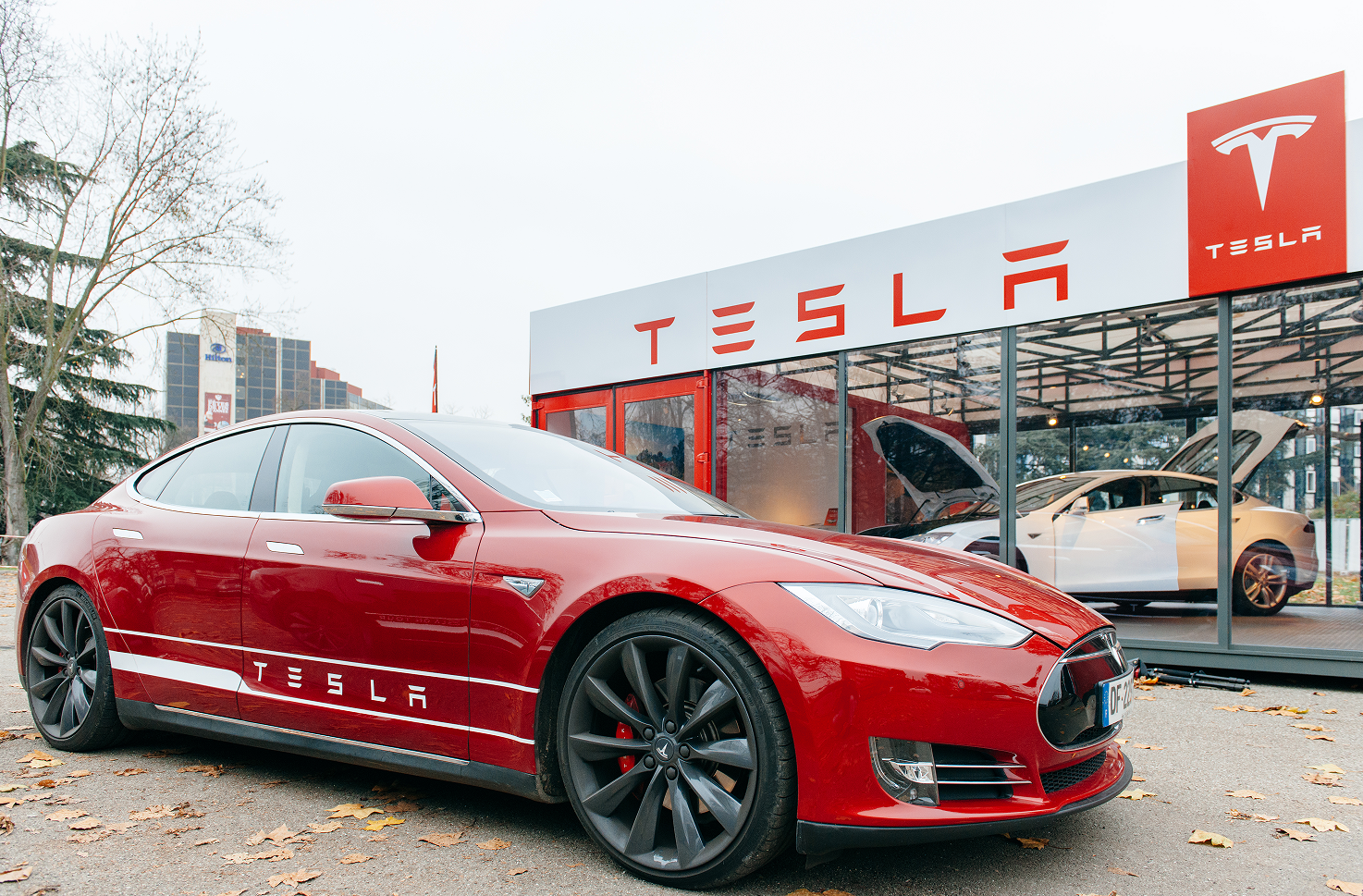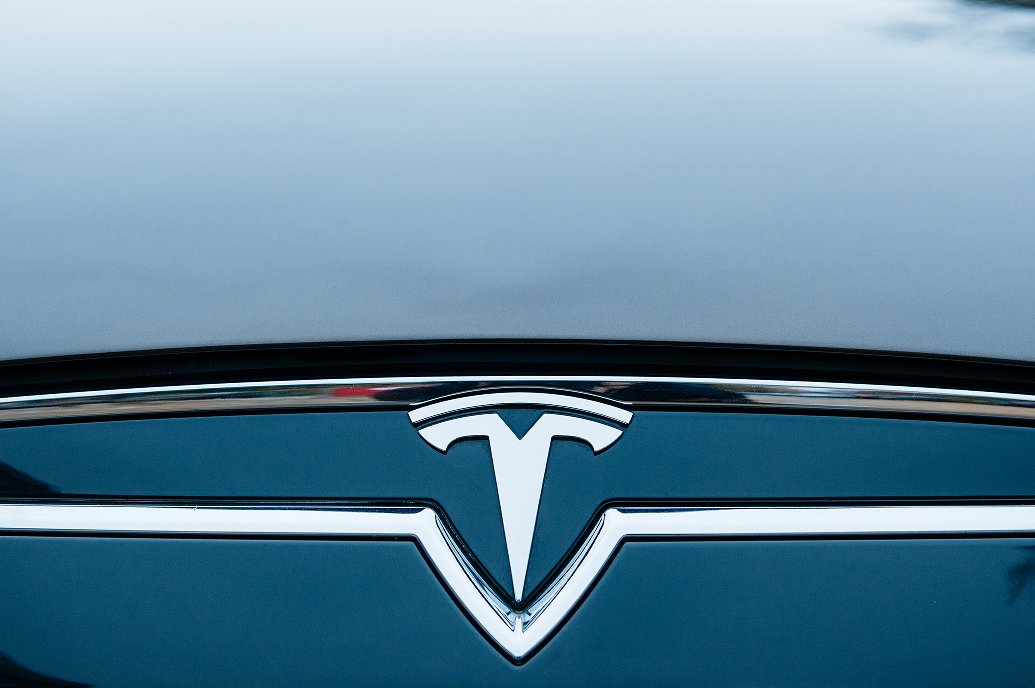
Recently, Tesla announced its car production and delivery report for Q2 2024, Tesla handed over 443,956 vehicles, 4.8% lower than last year. This represents the second consecutive quarter decline in Tesla's sales volume since 2012.
In the first half of this year, Tesla delivered 830,766 vehicles, a 6.6% decrease compared to the same period in 2023 when they delivered 889,015 vehicles. However, despite this decline, Tesla's second-quarter sales exceeded Wall Street expectations and led to its stock price reaching its highest level in nearly six months after announcing the sales figures.
Another notable fact is that Tesla's market share in China continues to decline. In 2021, Tesla held a market share of nearly 8% domestically. However, during the first quarter of this year, Tesla sold around 133,000 vehicles in China, accounting for only 6% of the total electric vehicle sales which reached 2.09 million units.
The future sales trends are optimistic
Tesla delivered a total of 422,405 units of its best-selling Model 3 and Model Y vehicles in the second quarter, which is lower than last year's 446,915 units. Additionally, Tesla did not disclose Cybertruck sales figures; however, Elon Musk revealed that the company produced 1,300 Cybertrucks within one week.
Dan Ives, a renowned strategist at Wedbush, stated that despite the weak global electric vehicle market, Tesla and Musk achieved a victory in second-quarter sales performance. He remains optimistic about Tesla's stock price.
Despite previous expectations of a significant decline in Tesla's second-quarter performance due to global demand instability for electric vehicles, the company is now experiencing a recovery based on market performance," Evers added. He further explained that Tesla has witnessed a slight rebound in the Chinese market, and stable prices have also aided it in overcoming difficulties.


Elon Musk mentioned in the April earnings call that there has been much discussion about our upcoming car production line, which we plan to launch soon. To speed up the introduction of new vehicle models, we now expect it to be as early as the end of this year or by early 2025 instead of the previously mentioned second half of 2025.
However, Tesla previously stated in January that it anticipated a significant decrease in delivery growth this year and abandoned its goal of delivering 20 million vehicles annually by 2030, as mentioned in the latest annual impact report released in May. This represents a notable deviation from its long-term annual growth target of 50%.
Lack of attraction?
Tesla has seen consecutive declines in delivery volume for two quarters compared to the previous year, something that hasn't happened since 2012. The decrease in delivery volume can be attributed to various factors, including a global automotive industry slump affecting consumer purchasing willingness and reports suggesting traditional fuel vehicles are regaining popularity. Additionally, Tesla's current models have been on the market for several years now and their appeal has diminished.
China, Tesla's second-largest market globally, witnessed retail sales of 132,400 units in Q1 of 2024, accounting for approximately 30.57% of the company's global production. However, this marked a decrease of about 3.64% compared to the previous year. According to data from the CPCA, Tesla's Shanghai factory recorded a wholesale volume of 71,007 units in June this year; whereas during the same month last year, Tesla China achieved higher wholesale sales with around 93,680 units.


Regarding the slowdown in Tesla's sales in China, analysts at West Securities believe that Tesla's infrequent model updates compared to other manufacturers may be a contributing factor. Despite releasing a new high-performance version of Model 3 in April, this model has failed to impress consumers due to its positioning and price.
Additionally, the electric vehicle market competition is intensifying, and Tesla faces challenges from both traditional car companies and emerging electric vehicle companies. To address these challenges, Tesla has consistently reduced car prices in the past year and a half; however, sustaining this strategy for long-term growth may prove difficult. It's worth noting that Musk announced layoffs of over 10% in April this year, marking the fifth significant layoff since 2017 for the company. This reflects Tesla's efforts to control costs and improve efficiency.
It's worth noting that Tesla launched a new promotional campaign on July 1st to boost sales in the second half of the year and compete with Chinese domestic brands. They have introduced a car financing policy for the standard version and long-range all-wheel drive version of Model 3 and Model Y: if you order before July 31st, you can choose a maximum 5-year interest-free plan with a down payment of RMB 79,900. Compared to the previous annual interest rate of 2.5%, purchasing the Tesla Model 3 and Model Y now saves over 20,000 RMB in interest.

Even though Wall Street's persistent optimism regarding Tesla's prospects, sales data disclosed by multiple car companies indicate that several Chinese firms, including BYD, NIO, and Leapmotor, have achieved unprecedented sales. Moreover, Chinese automakers have showcased formidable capabilities in the plug-in hybrid vehicle sector, with certain models even surpassing pure electric vehicles in terms of sales growth. Alongside fierce competition from Chinese brands, Tesla is also contending with delays in updating its product line and the impact of high interest rates in the United States. Consequently, Tesla finds itself currently embroiled in a "hard battle."
In July, Tesla entered Jiangsu Province's government procurement catalog for the first time. Additionally, Tesla has become a vehicle supplier to state-owned enterprises in Shanghai's Lingang Special Area, including Shanghai Chengtou Xinggang Investment Construction (Group) Co., Ltd., and Shanghai Lingang Special Area Investment Holdings (Group) Co., Ltd., who have purchased a batch of Tesla Model Y vehicles for corporate use.
Photo credit: Tesla, 58pic.com
Translator:Wei Xiong

 Room 1104,Block B,JingBan Building,6 Middle Beisanhuan Road,Xicheng District,Beijing
Room 1104,Block B,JingBan Building,6 Middle Beisanhuan Road,Xicheng District,Beijing
 (8610)62383600
(8610)62383600
 quanqixiang@carresearch.cn
quanqixiang@carresearch.cn
 京公网安备:11010202007638号|京ICP备17032593号-2|Report illegal and bad information:010-65993545-8019 jubao@carresearch.com
京公网安备:11010202007638号|京ICP备17032593号-2|Report illegal and bad information:010-65993545-8019 jubao@carresearch.com
Legal support:Beijing Yingke Law Firm|All rights reserved, DO NOT reproduce without permission